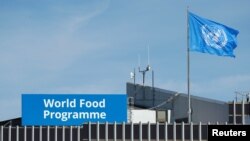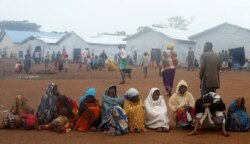The World Food Program and the U.N. Refugee Agency are appealing for $266 million to restore full food rations for more than 3 million refugees in Eastern Africa.
Millions of refugees in camps across East Africa are not getting enough to eat. U.N. agencies have been forced to cut food rations in countries across the region because of a lack of cash.
The most dramatic situation is in Rwanda, where refugees are having their food rations cut by 60%.
In Uganda, which hosts the largest refugee population in Africa, the World Food Program has cut its food assistance to 1.27 million refugees by 40%. Other countries affected by severe funding shortages include Kenya, Tanzania, South Sudan, Djibouti and Ethiopia.
WFP spokesman Tomson Phiri says refugees depend on humanitarian assistance to survive. He says ration cuts have many serious knock-on effects that go beyond the health consequences of being deprived of critical nutritional needs.
“When food is in short supply, protection concerns, including sexual and gender-based violence, increases in the camps, and this can also serve to significantly escalate tensions even within hosting areas,” he said.
The U.N. Refugee Agency says people who do not have enough to eat are forced to resort to so-called negative coping mechanisms to survive. UNHCR spokesman Boris Cheshirkov says the cuts in food aid are having dramatic consequences.
“Already, the cuts in food rations and cash are forcing people to skip or reduce meals, to sell off their belongings, and the risks are growing, including of child labor and domestic violence. People are already feeling desperate, and we need the support to ease their hardship,” he said.
The U.N. agencies warn of growing risks if food rations are not fully restored. These include increased malnutrition and anemia, stunted child growth and a myriad of protection risks.
They say the COVID-19 pandemic is compounding problems for refugee families. They note lockdowns and measures to contain the spread of the coronavirus have wiped out the ability of families to support themselves and find a way to put food on the table.





